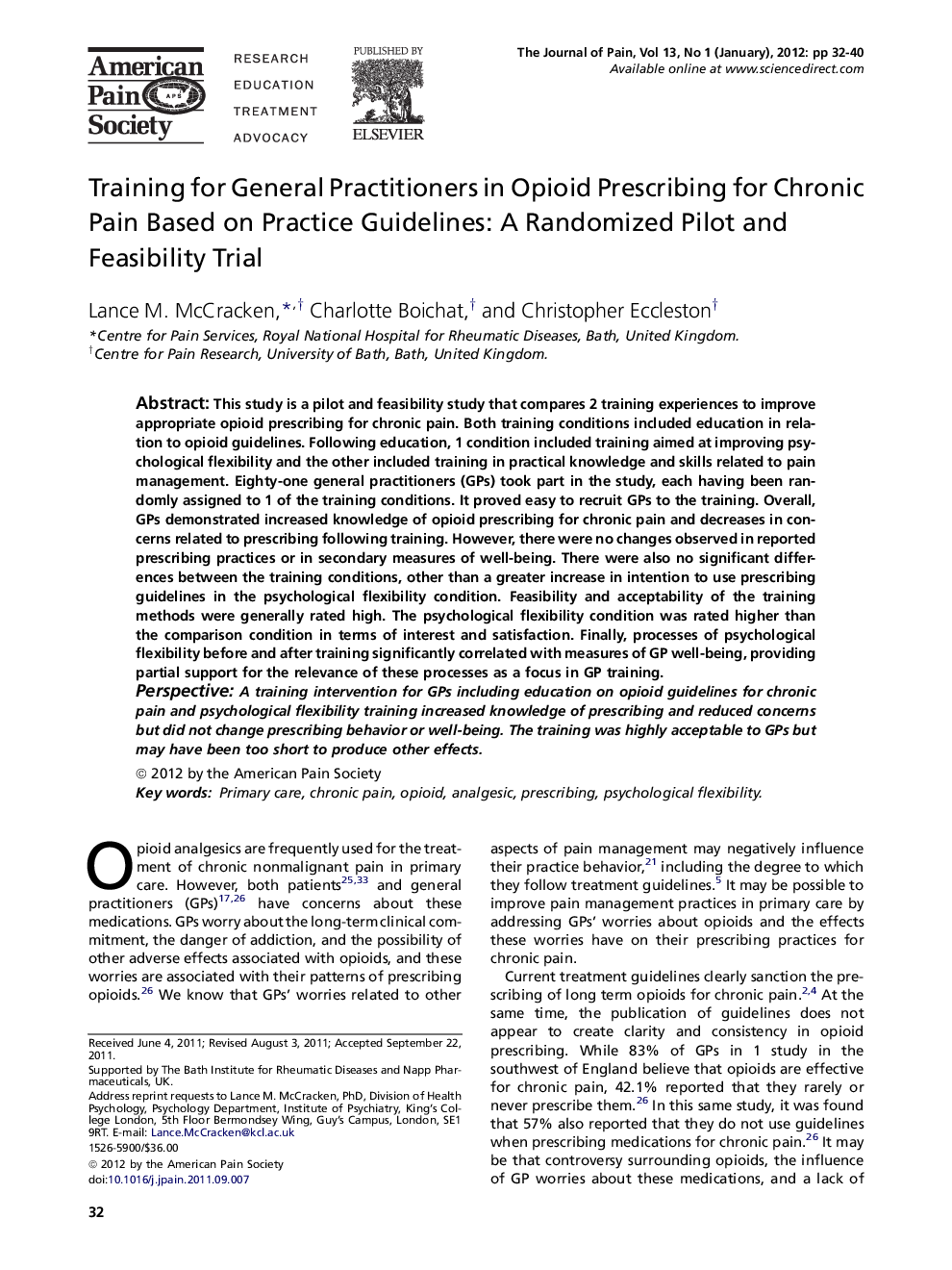| Article ID | Journal | Published Year | Pages | File Type |
|---|---|---|---|---|
| 2728936 | The Journal of Pain | 2012 | 9 Pages |
This study is a pilot and feasibility study that compares 2 training experiences to improve appropriate opioid prescribing for chronic pain. Both training conditions included education in relation to opioid guidelines. Following education, 1 condition included training aimed at improving psychological flexibility and the other included training in practical knowledge and skills related to pain management. Eighty-one general practitioners (GPs) took part in the study, each having been randomly assigned to 1 of the training conditions. It proved easy to recruit GPs to the training. Overall, GPs demonstrated increased knowledge of opioid prescribing for chronic pain and decreases in concerns related to prescribing following training. However, there were no changes observed in reported prescribing practices or in secondary measures of well-being. There were also no significant differences between the training conditions, other than a greater increase in intention to use prescribing guidelines in the psychological flexibility condition. Feasibility and acceptability of the training methods were generally rated high. The psychological flexibility condition was rated higher than the comparison condition in terms of interest and satisfaction. Finally, processes of psychological flexibility before and after training significantly correlated with measures of GP well-being, providing partial support for the relevance of these processes as a focus in GP training.PerspectiveA training intervention for GPs including education on opioid guidelines for chronic pain and psychological flexibility training increased knowledge of prescribing and reduced concerns but did not change prescribing behavior or well-being. The training was highly acceptable to GPs but may have been too short to produce other effects.
